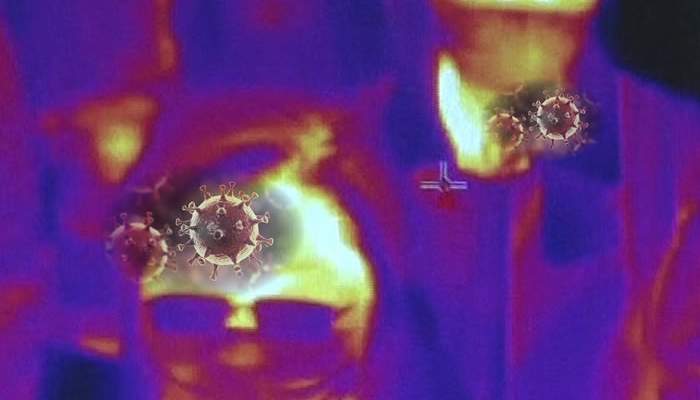Which countries are the safest against coronavirus?
While we are writing this article, somewhere in the world someone is getting Coronavirus Covid-19 or is dying, while WHO asks for “calm” and refuses to declare the World Pandemic, (we all know that they reimburse the pre $ political ions of China), how we could see it at the time of declaring the global health alert, which delayed at least 15 days succumbing to the designs of Chinese censorship, which, as it did with its people, how was the doctor’s case who warned about the virus in December, was silenced and then died of the same virus, and how they “disappeared” to journalists who reported what is happening in Chinese hospitals.
For this and many other things, we can not trust 100% what the WHO says, but it is known from independent studies that the coronavirus is difficult to survive long in places where there is a lot of humidity and heat, but if the The virus is impregnated on an inanimate surface such as metal, plastic or glass in a place where there is dry and cold air, such as acclimatized places, for example: an uninfected aircraft.
Not so, countries with more temperate and / or colder climates, and let’s see why.
Coronaviruses include dozens of viruses, but only seven affect humans. Four cause mild colds in humans, while others are newer, lethal and are considered to be transmitted from animals, such as bats and camels. Health authorities have called the new SARS-CoV-2 virus and the disease caused by COVID-19.
Recently, President Donald Trump said that “when it starts to get hotter” the pandemic will decline. And its claim is not crazy.
Viruses that cause the flu or milder colds due to coronaviruses tend to abate in warmer months because these types of viruses have what scientists call “seasonality,” so the president’s comments have some scientific basis. However, it is a mystery if the SARS-CoV-2 will behave in the same way. Those who are currently studying the disease argue that their research is in a phase too preliminary to predict the response of the virus to the change of time.
When it is outside the human body, external forces damage the virus. Alcohol from the hand sanitizer, for example, disintegrates these proteins and lipids. This makes the virus less stable and less likely to cause an infection.
Serious research on the viruses that cause the flu, relate the disease as something seasonal linked to the winter season, on average the so-called “flu season” arrives until April.
Theories on the transmission of seasonal viruses.
The investigations, which are several, throw important considerations.
It follows that:
- Seasonal flu viruses tend to spread more easily when people are confined in confined spaces, forced to be there for the cold of the season.
- Viruses tend to spread more easily in dry and cold air.
- Warm air retains more moisture, which prevents airborne viruses from traveling as far as they would in dry air.
- High temperatures and humidity slow the spread of viruses.
- In wet conditions, liquid droplets from a cough or sneeze pick up more moisture when they are ejected. Finally, being too heavy to stay in the air, they fall to the ground.
- Some tropical regions document more cases of influenza during the rainy season, when people are also confined to their homes.
- Cold and dry air can dry the mucus and cause it to lose effectiveness when catching a virus.
- UV light breaks down the nucleic acid. It almost sterilizes [the surfaces]. If you are outdoors, it is generally cleaner than the interior, simply because of that UV light.
In fact, UV light is so effective in killing bacteria and viruses that it is often used to sterilize hospital equipment.
Conclusion:
It is clear that for these reasons no cases have been seen in countries near Ecuador, with high UV radiation, high humidity and high temperatures, such as the countries of Africa and South America, except Chile which is a southern country that sees the four seasons .
Being in places near sea level, with high temperatures, lots of sun and high humidity can help prevent the transmission of COVID-19.




